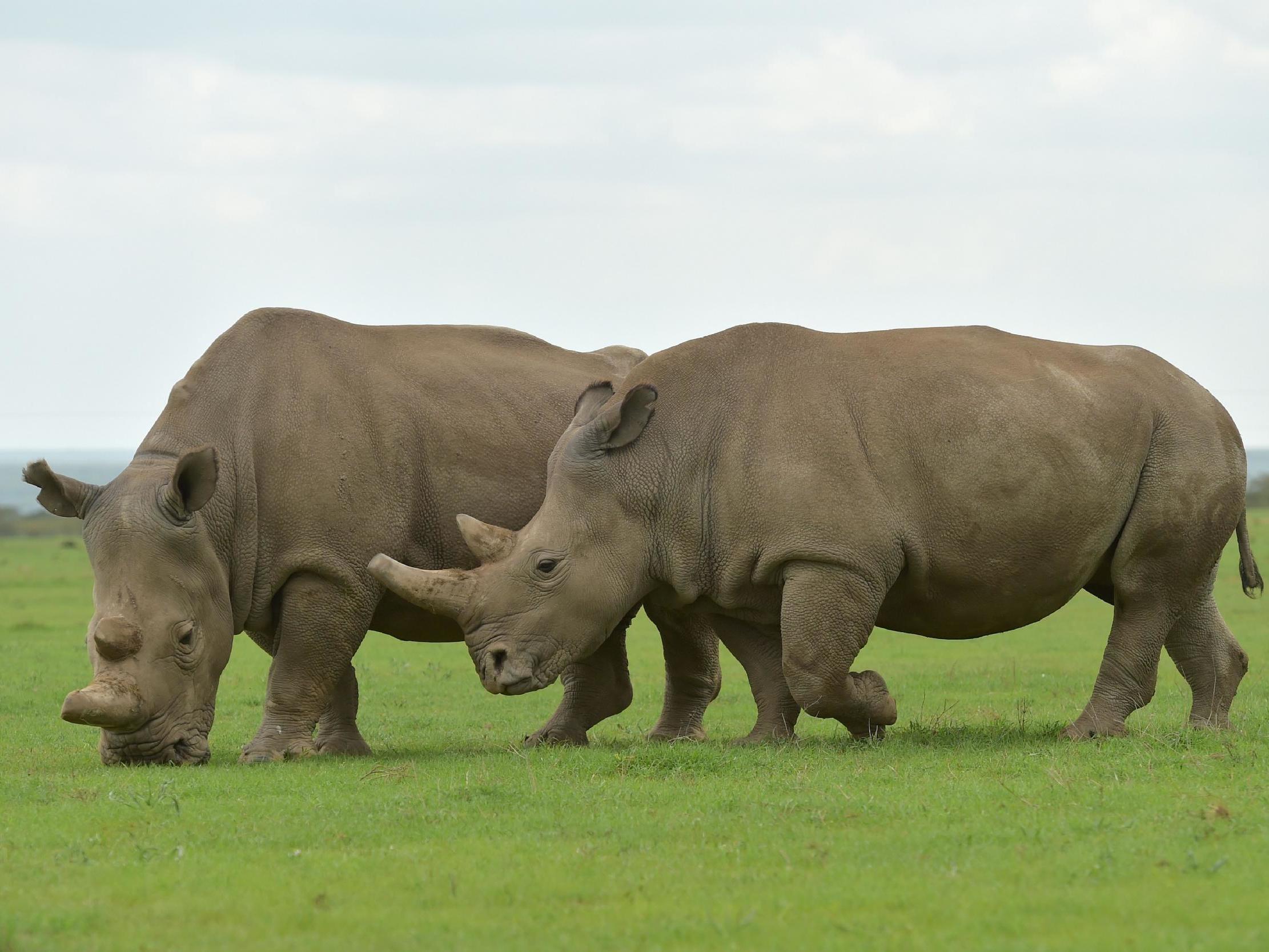Coronavirus: Illegal wildlife traders cash in on virus by selling ‘cures’ of horn from endangered rhinos
Exclusive: Sellers in China and Laos advertise ineffectual product on social media app to people worried about falling ill

Your support helps us to tell the story
From reproductive rights to climate change to Big Tech, The Independent is on the ground when the story is developing. Whether it's investigating the financials of Elon Musk's pro-Trump PAC or producing our latest documentary, 'The A Word', which shines a light on the American women fighting for reproductive rights, we know how important it is to parse out the facts from the messaging.
At such a critical moment in US history, we need reporters on the ground. Your donation allows us to keep sending journalists to speak to both sides of the story.
The Independent is trusted by Americans across the entire political spectrum. And unlike many other quality news outlets, we choose not to lock Americans out of our reporting and analysis with paywalls. We believe quality journalism should be available to everyone, paid for by those who can afford it.
Your support makes all the difference.Illegal wildlife traders are cashing in on fears over the coronavirus outbreak by selling fake cures containing rhino horn and other endangered species parts, an investigation has found.
Sellers in China and Laos are advertising a Chinese medicine product called angong niuhuang wan on WeChat, a messaging and social media app, according to the UK-based Environmental Investigation Agency (EIA).
The “cure” on offer – images of which were posted with adverts – appears to have been produced in North Korea and, unlike the Chinese version, states that the ingredients include rhino horn and musk, the EIA says.
Rhinos are critically endangered after steady declines in the global population since the start of the 20th century. Hundreds are killed each year, nearly all poached for their horn for Asian markets. Buyers wrongly believe it has medicinal value, although it is made of the same material as human nails and hair.
Last month Chinese health chiefs issued a list of recommended treatments for coronavirus that included the medicine. Rhino horn has been replaced by buffalo horn in the formulation for angong niuhuang wan in the country’s official drugs compendium since at least 1990.
Sold as “medicine balls”, it consists of mineral, herbal and animal ingredients that are claimed to reduce fever.
One China-based seller has a long history of using WeChat to sell parts from tigers, elephants, rhino, helmeted hornbill birds and other wildlife, the investigators claim.
Another is said to be a Chinese company with multiple stores in the Laos capital, Vientiane, that sell tiger, elephant, bear, rhino and other animal parts. Some items are sold openly and others under the counter. The company’s WeChat account is full of illegal wildlife products for sale, according to EIA.
After the coronavirus started to spread, the Chinese government shut down the Wuhan market selling live animals where it was thought to have originated from animals kept in cages.
However, other markets in the country have continued to sell animals for food, from bats and snakes to dogs, cats pheasants and turtles.
China temporarily banned the trade in wildlife as part of an effort to control the spread of coronavirus, but conservationists called for the ban to be made permanent.
The discovery came as African wildlife activists called for an end to the trade in lion bones for Asian medicine, saying it could also be spreading disease. More than 1,000 lions are killed each year in South Africa for the trade.
The EIA investigators said their findings highlighted “the urgent need for effective enforcement against illegal wildlife trade and for the resources to reduce demand for wildlife threatened by trade in traditional medicine, backed up by legal prohibitions”.
EIA has previously reported the sellers it identified to national authorities and intergovernmental bodies, in 2015 and 2018.
“That they continue to offer illegal wildlife products with apparent impunity illustrates the need for more committed efforts to tackle illegal wildlife trade and further supports,” the organisation said.
North Korea is not a signatory to the Convention on International Trade in Endangered Species (CITES), under which international commercial trade in rhino products is banned. But China and Laos have signed, so imports and exports of any rhino horn product are illegal.
Chinese consumers use high numbers of parts and products of rhinos, big cats, pangolins, leopards and other species in traditional medicines, previous investigations have shown.
In 2018, the Chinese government lifted a 25-year ban on the use of domestically farmed tiger bone and rhino horn in traditional medicine, and the following year the World Health Organisation was accused of setting back conservation by endorsing hundreds of traditional Chinese remedies in its international guidelines. The country's leaders said they were delaying the ban following a worldwide backlash, and EIA says it status is now unclear.
Last year, at least 107 bottles of tiger bone wine were seized by officials at the China-North Korea border, found in the luggage of returning Chinese tourists.
South Africa’s EMS Foundation, lobbying for an end to lion bone trading, said: “It is likely that individual lion ‘slaughterhouses’ are operating outside of the law and are not definitely not compliant with food safety law and/or occupational health and safety law. Not only should they be closed down but criminal charges must be laid against such ‘facilities’.”
The Independent has asked WeChat to comment.
Join our commenting forum
Join thought-provoking conversations, follow other Independent readers and see their replies
Comments